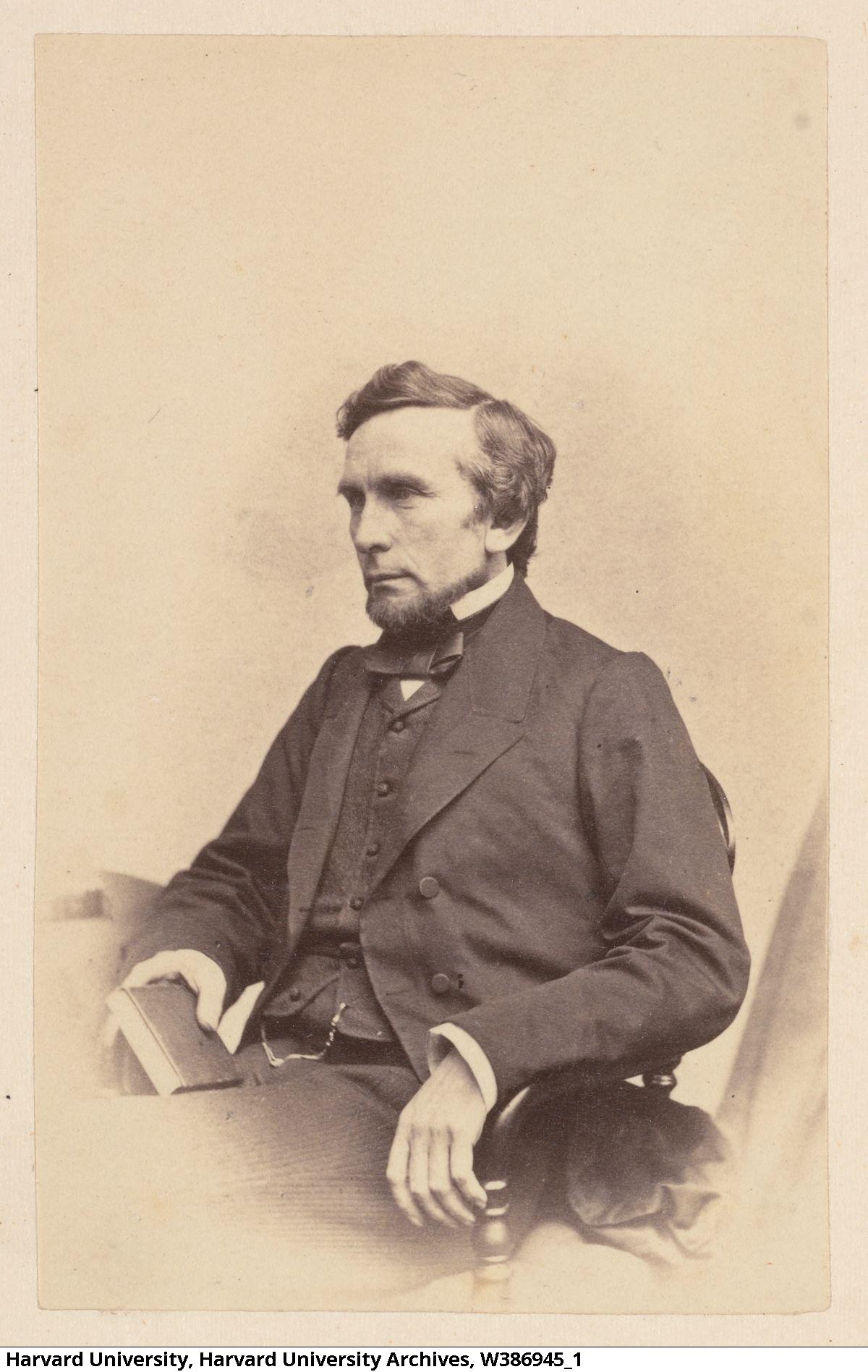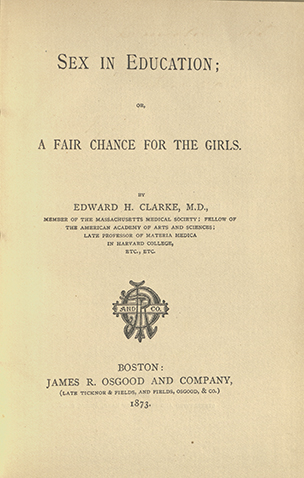In Sex in Education: A Fair Chance for Girls (1873) Dr. Edward Hammond Clarke (1820-1877) claimed that educating women to the same standards as men would have disastrous effects, depleting women’s energy for womb development and leading to sterility. Dr. Clarke specifically discouraged elite white women from pursuing an education akin to the one Bryn Mawr offered because it would lead to race suicide. When speaking of working-class women, he was not concerned, however, asserting that they began employment in their late teens, when their reproductive organs were fully developed, and that their work was not mentally taxing. Dr. Clarke implored that women take “care of the reproductive system that is the cradle of the [white, elite, Anglo-Saxon] race” lest “the [white] race will be propagated from its inferior classes.”
Dr. Clarke’s theories were not easily dismissed and caused many to question the safety of women’s participation in higher education. It was essential that Bryn Mawr students’ health be documented and displayed so as to prove that a rigorous academic curriculum would not cause dangerous mental strain or render them infertile, thereby contributing to the decline of a white, Anglo-Saxon society. Bryn Mawr disproved Dr. Clarke’s theories, but the College made no effort to challenge the underlying, racist, classist attitudes that shaped them and their popular acceptance.


Sex in Education: or, A Fair Chance for the Girls, Boston: J. R. Osgood, 1873
Bryn Mawr College Special Collections
“Educate a man for manhood, a woman for womanhood, both for humanity. In this lies the hope of the race.”
Edward Hammond Clarke, Sex in Education: A Fair Chance for Girls, 1873, 19.
“We did not know when we began whether women’s health could stand the strain of college education. We were haunted in those days by the clanging chains of that gloomy little spectre, Dr. Edward Clarke’s Sex in Education. With trepidation of spirit, I made my mother read it and was much cheered by her remark that as neither she nor any of the women she knew had ever seen girls or women of the kind described in Dr. Clarke’s book, we might as well act as if they didn’t exist. Still, we did not know whether college might not produce a crop of just such invalids. Doctors insisted that it would; we women could not be sure until we had tried the experiment.“
M. Carey Thomas, “President Thomas’s Address,” Bryn Mawr Alumnae Quarterly, January 1908, 45.
